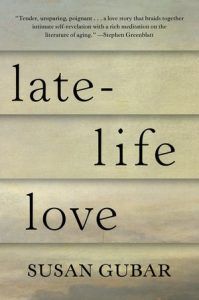John Sutherland in The New York Times:
 My parents’ generation, lucky enough to pass the biblical three score and 10, would describe themselves as living on “borrowed time.” Susan Gubar has been granted a longer credit line than most. In 2008, in her mid-60s, she learned she had ovarian cancer. It spread. After the cruelties of chemo, she was subjected to “debulking” — surgical evisceration. Gubar described the procedure unflinchingly in her 2012 book,“Memoir of a Debulked Woman.” It’s not easy to read unflinchingly. The postoperative prognosis was bleak, but a then-experimental drug therapy has lent her time. It’s the kind of chess-game stay of execution Ingmar Bergman dramatizes in “The Seventh Seal.”
My parents’ generation, lucky enough to pass the biblical three score and 10, would describe themselves as living on “borrowed time.” Susan Gubar has been granted a longer credit line than most. In 2008, in her mid-60s, she learned she had ovarian cancer. It spread. After the cruelties of chemo, she was subjected to “debulking” — surgical evisceration. Gubar described the procedure unflinchingly in her 2012 book,“Memoir of a Debulked Woman.” It’s not easy to read unflinchingly. The postoperative prognosis was bleak, but a then-experimental drug therapy has lent her time. It’s the kind of chess-game stay of execution Ingmar Bergman dramatizes in “The Seventh Seal.”
Gubar is a literary critic and one of the few who can claim to have made a lasting difference. In 1979, in “The Madwoman in the Attic,”she and Sandra M. Gilbert redirected the reader’s central focus from the Jane Eyres to the Bertha Masons of literature (to take the title’s allusion). Chained Bertha, the first Mrs. Rochester, isn’t deranged; rather, she’s the oppressed part of Jane herself and a representative of 19th-century women in general. For those of my generation, it was as if scales had dropped from our eyes and we were able to see afresh a range of works we had fondly presumed we already knew. Living on Sarcoma Penitentiary’s death row surely concentrates the mind, in Samuel Johnson’s dry phrase. There’s no reprieve; merely, with luck, indefinite delay. In her borrowed time, Gubar thinks about life, love and literature from where she is now — existing between hospital appointments, any one of which could be, literally, terminal.
More here.
